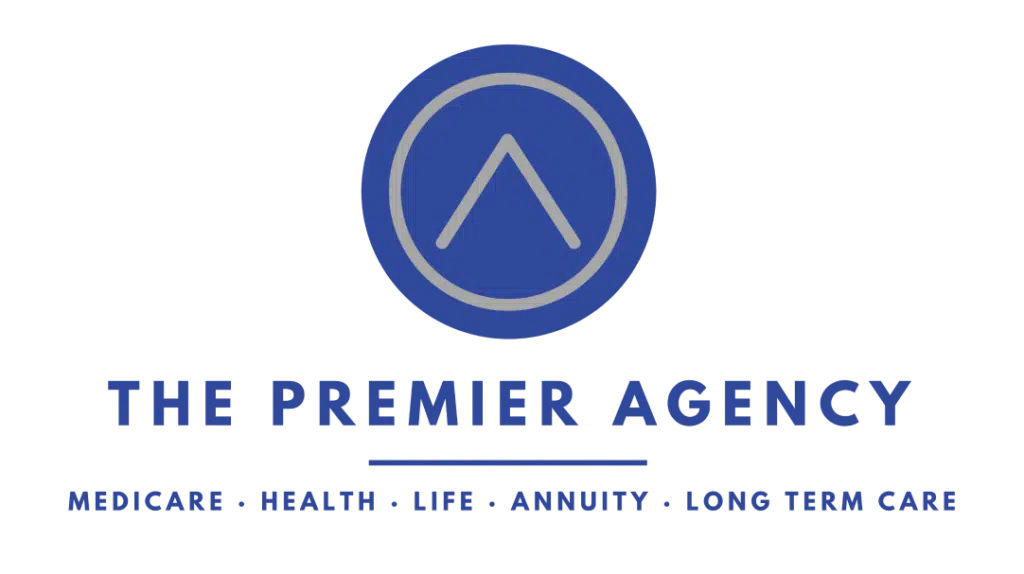Recent changes in Medicare, at both federal and state levels, have significantly impacted Arizona’s job market, particularly in the healthcare sector. As a result of these policy shifts, wages in Medicare-related jobs are being adjusted to meet the changing needs of an aging population. Specifically, careers in substance abuse treatment and blood services are experiencing the effects of these changes, influencing both job opportunities and employer strategies.
In this article, we will explore the impact of these Medicare reforms on careers in Arizona, providing professionals and businesses with valuable insights to help them adapt and succeed in this evolving landscape.
Key Takeaways
- Medicare Reforms in Arizona are Creating a Demand for Skilled Professionals in Medicare Services
- Updates to Policies are Shaping New Career Opportunities and Training Programs in Healthcare
- Employers in Arizona‘s Healthcare Sector Must Adapt Hiring Strategies to Meet New Medicare Compliance
- Technology and Policy Changes are Driving the Need for Continuous Professional Development
- Legislative Changes in Medicare Are Influencing the Economics of Healthcare and Job Creation Statewide
How Federal Medicare Reforms Impact Arizona‘s Job Market

The recent Medicare reforms at both federal and state levels are bringing about significant changes in Arizona’s healthcare sector. These changes are anticipated to have a major impact on the job market in the state.
The updated policies, especially those resulting from the recent Inflation Reduction Act, are expected to have far-reaching effects on the complex healthcare system.
The emphasis on primary care in these policy changes indicates a need for skilled professionals who are ready to take on leadership roles in Medicare services.
Assessments of the workforce are highlighting the immediate impact on healthcare employment, raising important questions about the availability of funding to meet these evolving needs.
While the reforms introduce numerous new career opportunities, they also underline the importance of establishing strong workforce development and training programs to prepare individuals to succeed in these new roles.
Assessing the Direct Effects on Healthcare Employment
Arizona’s healthcare industry is currently experiencing a significant transformation as a result of recent Medicare reforms. The focus is now on how healthcare facilities handle outpatient surgery. The link between the payment models introduced by these reforms and the financial worries of both healthcare providers and beneficiaries is crucial. The emphasis on efficient and cost-effective health insurance coverage in the United States is leading to creating jobs, particularly in health information technology and administration, to support these new payment systems.
| Aspect of Healthcare Employment | Impact of Medicare Reforms |
|---|---|
| Outpatient Surgery Centers | Increased need for specialized administrative staff |
| Personal Finance Management | Higher demand for financial advisors within healthcare settings |
| Health Insurance Coverage | Job growth in policy analysis and health insurance planning |
| Health Information Technology | Expansion of roles for managing electronic payment systems |
Identifying New Career Opportunities in Medicare Services
The landscape of Medicare services in Arizona is currently undergoing a significant overhaul, opening doors for new career possibilities. As healthcare provisions evolve to reduce hospital readmission rates and maintain a sustainable economy, Medicare service professionals now face an exam of adaptability. They are challenged to brand themselves as experts in emerging fields that address these pivotal healthcare metrics.
| Career Opportunity | Role in Medicare Services | Relation to Reforms |
|---|---|---|
| Transition Care Managers | Minimize hospital readmissions | Addressing care continuum improvements mandated by reforms |
| Medicare Policy Analysts | Assess the impact of reforms on service delivery | Ensuring adaptability and compliance within the evolving landscape |
| Healthcare Economists | Analyze Medicare policies’ impact on Arizona’s economy | Translating reforms into economic terms, aiding in policy refinement |
| Health Informatics Specialist | Implement technology solutions for new Medicare guidelines | Supporting data-driven approaches to reduce readmissions and streamline services |
Challenges for Workforce Development and Training Programs
Arizona‘s push to keep pace with Medicare reforms poses tangible challenges for workforce development and training programs. These initiatives must now refocus to ingrain essential skills that align with the new demands. A pressing skill is proficiency in health information exchange systems—a critical pillar in the Medicare Advantage framework that supports the seamless sharing of health data. Further, training must effectively communicate the complexities of Medicare Advantage plans, ensuring professionals can navigate enrollment periods adeptly and assist beneficiaries with vaccine scheduling and coverage understanding—an integral part of Medicare Advantage enrollment.
- Workforce development programs must adapt curriculums to include health information exchange system training.
- Understanding Medicare Advantage plans becomes crucial for healthcare professionals.
- Medicare Advantage enrollment and vaccine coverage are key focus areas for training initiatives.
State-Level Medicare Changes and Their Effect on Local Economies

Amid the landscape of reforms, physicians and beneficiaries in Arizona are observing a shift in healthcare coverage that brings both challenges and new prospects.
Legislative changes at the state level often lead to job creation, fueling a diverse range of positions linked to the Medicare services sector.
This adjustment supports the existing workforce and nurtures the growth of small businesses by addressing coverage needs and reducing costs.
The focus is squarely on how these policy tweaks enhance economic well-being, with an eager eye on state reforms that promise a ripple effect of benefits across local communities.
State-initiated adjustments also prompt updates to health providers’ practices, ensuring beneficiaries receive the care they need while potentially lowering their financial demands.
Integrating new systems also generates demand for expertise in healthcare coverage coordination, which can be as simple as managing a beneficiary‘s email address list for appointment reminders or as complex as navigating complex payment models to keep health services affordable.
The Role of State Reforms in Job Creation
State reforms in Arizona, aimed at revolutionizing Medicare, are acting as a catalyst for job creation by allocating the budget towards healthcare initiatives that address major risk factors such as diabetes. By reinforcing programs to manage this chronic condition, these reforms encourage the emergence of specialized health roles centered on prevention and management, yielding employment growth. Moreover, a sharpened focus on fiscal policies, such as lowering deductibles for critical treatments, helps reduce financial risk for patients while simultaneously generating opportunities in financial counseling within the healthcare sector.
Analyzing the Economic Benefits for Small Businesses
The pandemic has reshaped the notion of tax incentives, especially for small businesses grappling with medical costs, and Arizona‘s Medicare developments reflect this learning curve. Consider insights from the Medical Expenditure Panel Survey, which suggests that tax breaks tied to healthcare substantially aid local enterprises, relieving the financial burden of employee medical needs. Moreover, upgrades to Medicare often include technological advancements, like enhanced telephone systems, which can streamline processes for small business owners and reduce operational expenses, thus fueling economic recovery and resilience.
The Changing Landscape of Healthcare Careers in Arizona

New federal and state Medicare reforms, especially in health economics and community health, have greatly affected the job market in Arizona.
Certain areas within healthcare are growing as the industry adjusts to a new payment system. The demand for professionals who can navigate these changes is increasing as a result.
Employers in the healthcare industry are seeking individuals with skills in the latest health technologies and payment models to effectively meet the evolving demand.
Mapping Out the Growth Areas in Healthcare Employment
In response to the evolving needs highlighted by the Association of American Medical Colleges, Arizona‘s healthcare sector is witnessing a surge in employment centered on drug research and management. Reports in PDF format detail how integrating experts new Medicare reforms necessitates a breed of experts able to merge scientific inquiry with resourceful management practices, ensuring that innovations in drug therapy are both effective and aligned with the latest healthcare policies.
Skill Sets in High Demand Due to Medicare Reforms
In the wake of Medicare reforms, Arizona’s growing healthcare market highlights a need for professionals who are well-versed in health policy, with a particular emphasis on conditions that draw attention to medical journals, such as cardiovascular disease. The culture within healthcare settings is shifting towards a model that prioritizes a deep understanding of how policies can influence disease management and patient care. Articles in JAMA (the Journal of the American Medical Association) reinforce the pressing demand for expertise in navigating the health implications of these reforms.
| Career | Skill Set | Relevance to Medicare Reforms |
|---|---|---|
| Health Policy Analyst | Strong grasp of Medicare regulations and their impact on disease management | Essential for adapting to reforms in patient care, especially for prevalent diseases like cardiovascular disease |
| Medical Researcher | Ability to analyze and apply findings from medical literature, such as JAMA, to affect policy changes | Key in developing strategies to integrate new research outcomes within the context of Medicare changes |
| Cultural Competency Trainer | Expertise in training healthcare staff to address diverse patient needs in a policy-driven environment | Crucial for ensuring the delivery of culturally sensitive care underpinning the new Medicare landscape |
Guide to Navigating Career Shifts Amidst Medicare Changes

In the midst of reforms to Medicare, including the tweaking of Medicare Advantage plans, Arizona‘s workforce is standing at the crossroads of significant evolution.
Those aiming to map out their futures in the healthcare sector must now account for the nuances of dental insurance and ponder the specifics of elderly care and the expanding roles within companies like Humana.
Career planning has become more intricate, calling for a tailored approach that matches the shifting demands of employment within this changing landscape.
Equally, for Medicare specialists, the value of professional development and continuing education has never been more pronounced. They serve as vital instruments for those striving to maintain relevance and excellence in a reform-influenced healthcare system.
Planning Your Career Path in the Evolving Healthcare Sector
As Arizona grapples with the ramifications of Medicare reforms, individuals eyeing a career in the healthcare field must adapt to a future where managed care is paramount and the aging population firmly guides market demand. Navigating this requires a deep understanding of database systems essential for tracking patient care and subsidies, ensuring providers meet the complex needs of an evolving demographic. Ambitious professionals must now emphasize proficiency in these areas to secure their roles in a dynamic healthcare environment.
Professional Development and Continuing Education for Medicare Specialists
Continual learning and advancement are the touchstones for Medicare specialists striving to stay abreast of policy shifts in the healthcare realm. Given the dynamic interplay between medical coverage and factors like socioeconomic status and disability, professionals must engage with training programs incorporating findings from authoritative bodies such as the National Institutes of Health. This education prepares them to consider a broad range of considerations, including the annual adjustments of the “market basket” that influence healthcare expenses.
- Engaging in ongoing training to align with healthcare policy updates.
- Integrating research from the National Institutes of Health into Medicare practice.
- Understanding the impact of socioeconomic status and disability on Medicare.
- Staying informed on “market basket” adjustments affecting healthcare costs.
Strategies for Employers to Adapt to Medicare Workforce Requirements

In Arizona‘s shifting healthcare employment climate, employers face the challenge of adjusting their hiring practices to attract individuals with the unique skill sets necessitated by the latest Medicare reforms.
As these changes spotlight the sophisticated care required for chronic conditions, such as kidney health, there’s a growing need for caregivers adept in the latest methodologies of patient care and reimbursement protocols.
Employers are thus tasked with not only refining their talent acquisition strategies but also investing heavily in training tools that ensure their workforce is proficient in adhering to new Medicare compliance standards and delivering top-grade service to beneficiaries.
Adapting Hiring Practices to Meet Changing Skill Needs
In response to the dynamic reforms in Medicare, including updates to Medicare Part D, employers in Arizona must strategically refine their talent acquisition processes. There’s an escalating demand for profiles that not only comprehend the nuances of medicine as cataloged in publications like PubMed but also align with demographic insights from the United States Census Bureau.
| Medicare Reform Aspect | Hiring Need | Skills Required | Resource for Skills Verification |
|---|---|---|---|
| Medicare Part D Updates | Medicare insurance agents | Understanding of prescription drug coverage and regulations | PubMed and Relevant Health Journals |
| Demographic Changes | Health Data Analysts | Ability to interpret census data for healthcare planning | United States Census Bureau Reports |
| New Patient Care Protocols | Clinical Staff | Expertise in modern treatment methodologies | Continuing Medical Education Courses |
Investing in Employee Training for Medicare Compliance and Service
As reforms shape the Medicare landscape, Arizona employers recognize the need to elevate their teams’ proficiency in insurance coverage compliance and service delivery. Investing in tailored training programs encompassing a sampling of current data trends and the nuances of remote work scenarios is now the average expectation in healthcare employment. These training endeavors ensure staff remain agile and informed in an environment marked by continuous regulatory updates.
- Average Arizona employers are enhancing training to address Medicare compliance effectively.
- Insurance coverage complexities necessitate ongoing education for healthcare workers.
- Sampling real-world data is integral to training programs, grounding them in practical application.
- In preparing employees for the digital shift, remote work training is included to navigate telehealth services.
Anticipating the Future: Medicare Reforms and Workforce Trends in Arizona

Amidst ongoing healthcare reform, the future of Arizona‘s Medicare service workforce is poised for significant change.
Federal and state initiatives are projected to further shape the roles and opportunities within health maintenance organizations, promoting a shift towards holistic care that inclusively addresses physical and mental health services.
New laws influencing the provision of care for individuals living in poverty are expected to evolve job profiles to accommodate these regulatory requirements.
Anticipation also builds around integrating technological advancements, with Medicare services preparing to leverage resources like PubMed Central for informed practice and patient education—signaling substantial transformations on the horizon for Arizona‘s healthcare professionals.
Projected Impact of Continued Federal and State Reforms
Looking ahead, the continuation of Medicare reforms is set to reconfigure the employment terrain significantly in Arizona, reminiscent of shifts seen in West Virginia‘s healthcare workforce. These alterations will likely prompt the revision of terms of service for professionals, particularly in fields like psychiatry, where understanding the implications of policy changes on patient treatment is vital. Responding to recommendations from bodies like the American Medical Association, the focus will sharpen on specialties such as chronic kidney disease, demanding that providers adapt to the new landscape to maintain quality care.
Preparing for Technological Advances in Medicare Services
As Arizona braces for the roll-out of new Medicare reforms, healthcare professionals anticipate a greater reliance on sophisticated technologies in preferred provider organization models. This shift aims to enhance patient experience and streamline services, potentially translating into better income outcomes for providers. Arizona‘s Medicare workforce is gearing up to integrate these technological advancements seamlessly into their practices.
Conclusion
As Arizona adapts to Medicare reforms, the healthcare job market is experiencing dynamic growth in specialized roles that demand adaptability and a strong skill set in health policy and technology.
Employers must refine their hiring and training strategies to align with new regulations and maintain high-quality care, ensuring their workforce can handle these changes.
The evolving landscape requires professionals to embrace continuous education and develop expertise in navigating new Medicare guidelines.
These shifts signify a pivotal moment for Arizona’s Medicare services sector, accenting the importance of a proactive response to the changing demands of the workforce.




